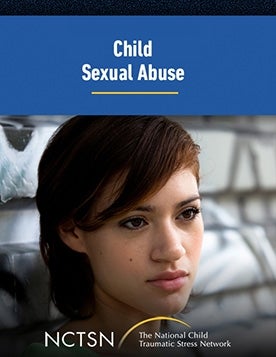
Child Sexual Abuse
Addresses the response to child sexual abuse. This webinar series provides information about special populations, secondary traumatic stress among providers, and collaborations with the media, among other topics.
The following resources on child trauma were developed by the NCTSN. To find a specific topic or resource, enter keywords in the search box, or filter by resource type, trauma type, language, or audience.

Addresses the response to child sexual abuse. This webinar series provides information about special populations, secondary traumatic stress among providers, and collaborations with the media, among other topics.
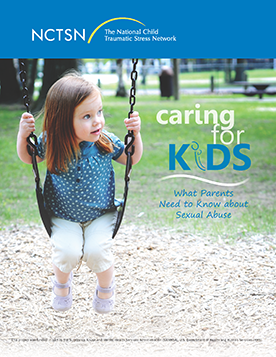
Provides parents and caregivers with tools to help them support children who have been victims of sexual abuse, information on the importance of talking to children and youth about body safety, and guidance on how to respond when children disclose sexual abuse.
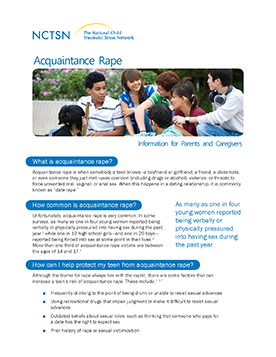
Defines acquaintance rape, discusses the occurrence of acquaintance rape, and offers suggestions to parents on how they can protect their children.
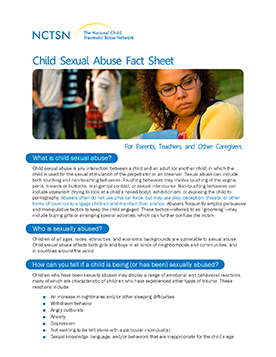
Defines and answers commonly-asked questions about child sexual abuse. This fact sheet outlines myths and facts about child sexual abuse and provides tips to help protect children.

Offers information to parents and caregivers about child sexual abuse and coping with the emotional stress of the legal system.
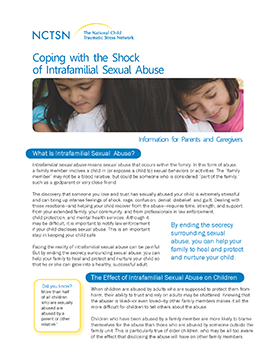
Provides information for parents and caregivers on intrafamilial sexual abuse.
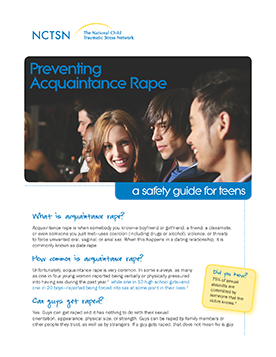
Offers teens information about acquaintance rape. This fact sheet provides information on what acquaintance rape is, how common it is, what date rape drugs are, how to stay safe, and common myths and facts about acquaintance rape.
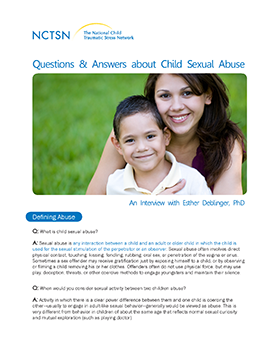
Provides parents and professionals with the answers to commonly asked questions about the impact of child sexual abuse.
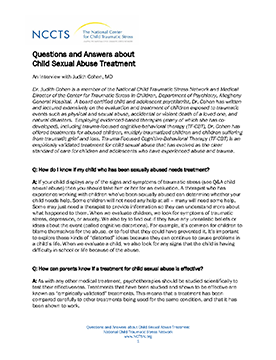
Provides parents and professionals with the answers to commonly asked questions about the impact of child sexual abuse treatment. This is a part of Caring for Kids: What Parents Need to Know About Sexual Abuse.
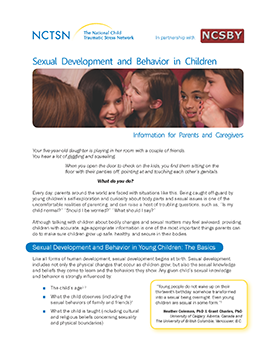
Provides parents and caregivers information on sexual development and behavior in children.
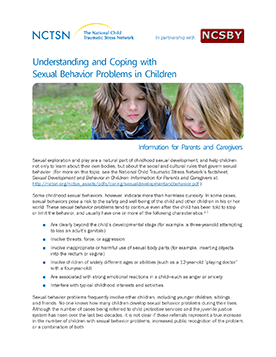
Provides parents and caregivers with information about coping with sexual behavior problems.

Offers survivors of acquaintance rape information on what they can do now.